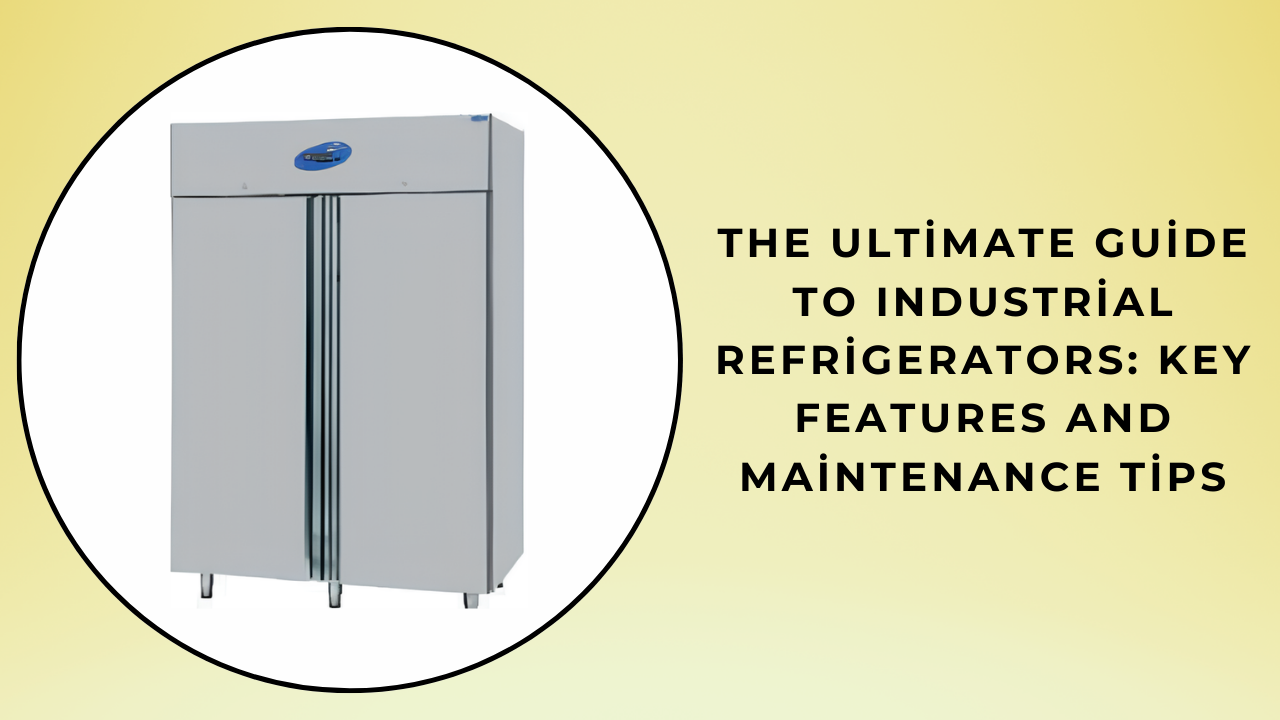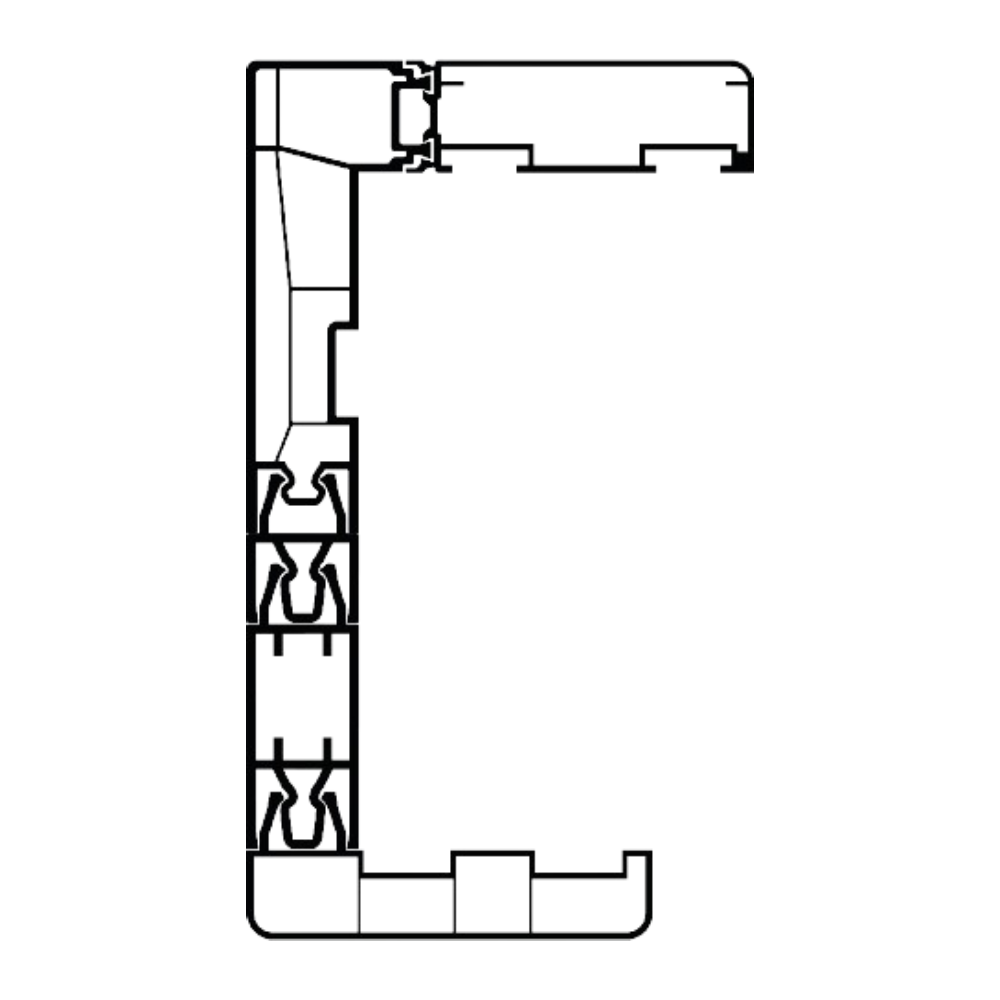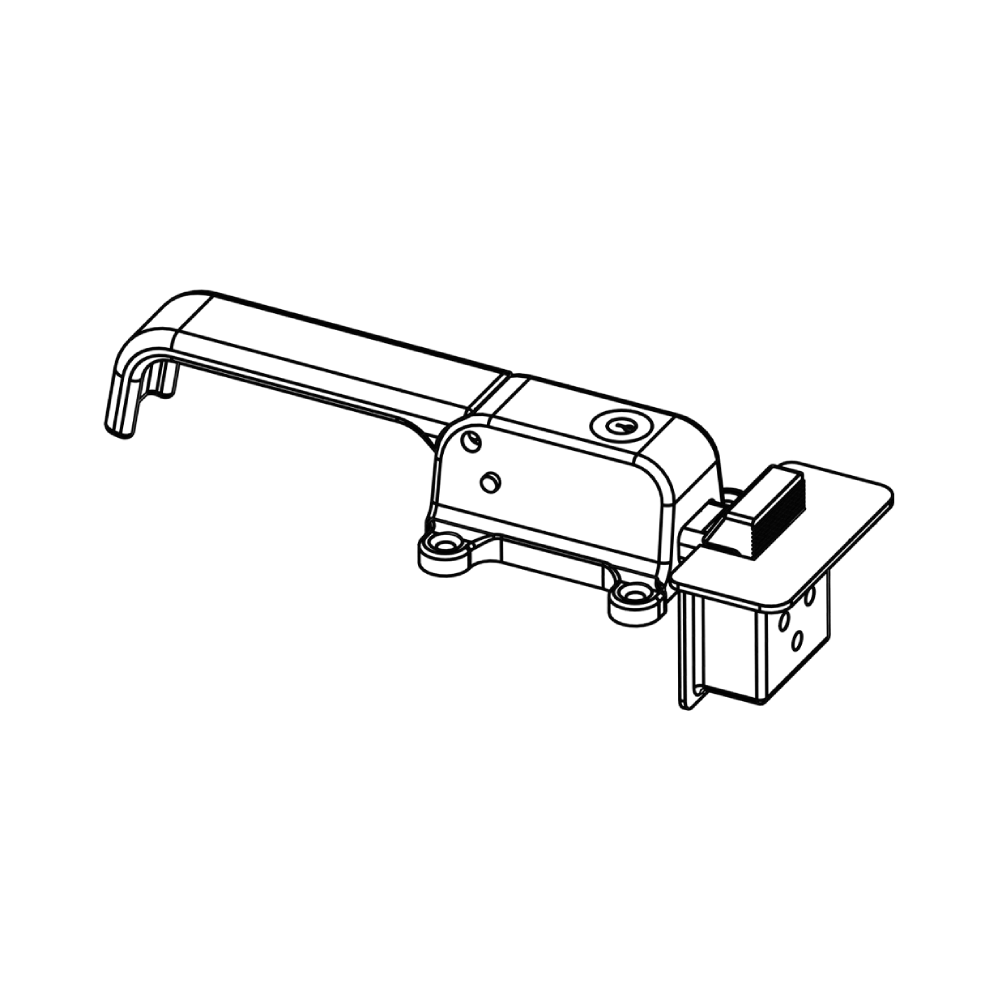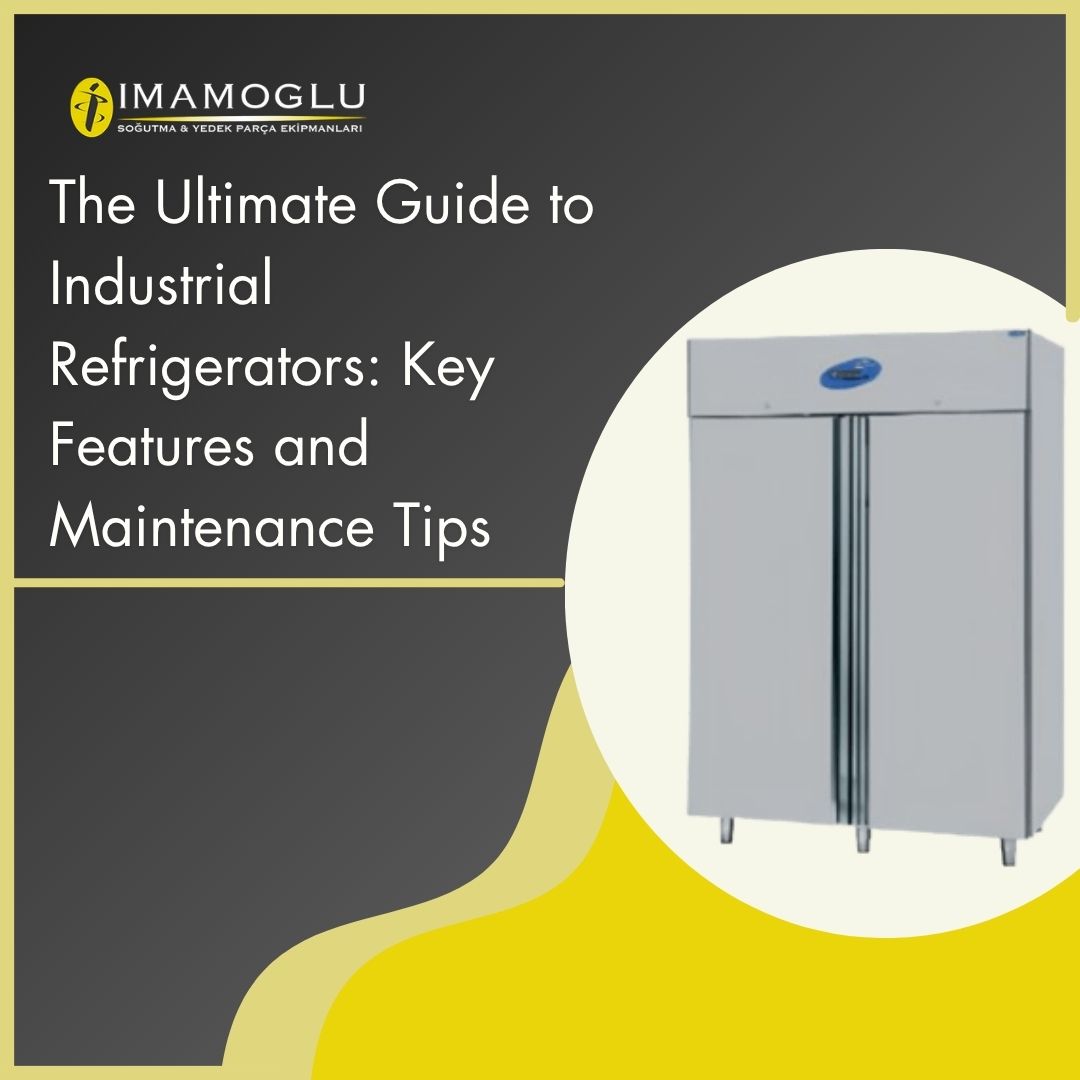The Ultimate Guide to Industrial Refrigerators: Key Features and Maintenance Tips
What is an industrial refrigerator and where is it used?
An industrial refrigerator is a large-scale refrigeration system designed for the storage of large quantities of food and beverages in the food industry, such as restaurants, hotels, catering services and food processing facilities. These types of refrigerators stand out with their larger capacity and durability than standard home refrigerators. Industrial refrigerators generally have greater cooling power and improved energy efficiency, but are designed to maintain specific temperature ranges to ensure food safety.
These refrigerators can be used to store a wide range of products, from fresh fruits and vegetables to meat and dairy products. It is also used in hotels and restaurants to ensure that drinks and snacks are quickly available. Industrial refrigerators are available in various sizes and configurations and can be customized according to the needs of different industries. Thanks to these features, it helps businesses keep food items fresh and safe.
What are the main features of industrial refrigerators?
Industrial refrigerators have many basic features. First of all, their high storage capacity allows businesses to store large amounts of food supplies. Refrigerators, which are generally made of more durable materials, are designed to carry heavy loads. Another important feature is temperature control systems. These systems ensure the freshness and safety of foods by maintaining certain temperature ranges.
Industrial refrigerators are equipped with modern energy-efficient technologies. This helps businesses reduce energy costs while also providing an environmentally friendly approach. Some models are equipped with digital displays and remote monitoring systems; In this way, business owners can instantly monitor the status and temperature settings of the refrigerator.
Advanced insulation features are also an important part of refrigerators. High-quality insulation contributes to energy savings by increasing the efficiency of the cooling system. Industrial refrigerators come in different sizes and shapes and can be customized as per needs; This allows businesses to use their space in the most efficient way.
What should be considered when buying an industrial refrigerator?
When buying an industrial refrigerator, it is necessary to pay attention to several important factors. First, the capacity of the refrigerator must match the needs of the business. A refrigerator that is too small cannot store products adequately, while a model that is too large may lead to unnecessary energy consumption. Correctly assessing the space needed is critical when making a selection.
Secondly, energy efficiency should also be considered. Energy efficient models can save businesses money in the long run. The energy efficiency of the refrigerator is usually indicated on the product label with classifications such as A++ or A+++.
The type of refrigerator's cooling system is also important. Most industrial refrigerators use air-cooled or water-cooled systems. The most appropriate cooling system must be selected according to the needs of the business.
The quality of service and maintenance services should also be taken into account. A good warranty and service network extends the life of the refrigerator and provides quick intervention in case of malfunction. These factors should be taken into consideration when purchasing an industrial refrigerator.

How should an industrial refrigerator be maintained?
Maintenance of an industrial refrigerator is vital to both maintain the freshness of the products and extend the life of the appliance. First of all, regular cleaning should be done. The interior surfaces of the refrigerator should be cleaned of any food residue or dirt. For this, suitable cleaning products and hot water can be used. During cleaning, the refrigerator's doors and seals should also be checked. Having gaskets in good condition increases cooling efficiency.
Secondly, temperature settings should be checked regularly. The temperature inside must comply with established standards and adjustments must be made where necessary. Temperature monitoring systems make this control easier.
In addition, the fan and air ducts on the back of the refrigerator should also be cleaned regularly. Dust and dirt can reduce cooling performance. Professional maintenance should be performed to check whether the cooling system is working adequately. This type of maintenance prevents major repair costs in case of malfunction. Regular maintenance and cleaning ensures efficient operation of the industrial refrigerator.
What are the best energy saving tips for industrial refrigerators?
Energy saving of industrial refrigerators is important for both the environment and operating costs. First, it should be emphasized that the refrigerator doors should not be opened frequently. When the doors are opened, the internal temperature increases, causing the cooling system to consume more energy. Allowing users to quickly pick up the products and close the lids helps save energy.
Secondly, the area where the refrigerator will be placed must be well ventilated. Leaving enough space around the refrigerator allows the cooling system to work effectively. Otherwise, insufficient ventilation may cause the device to overheat, which increases energy consumption.
The use of energy efficient LED lighting is also important. LED lamps consume much less energy than traditional lighting and have a long life. Regular maintenance and cleaning increases the efficiency of the cooling system and saves energy. Accumulation of dust and dirt can negatively affect the performance of the cooling system. Paying attention to these tips will increase the energy savings of your industrial refrigerator.
What are the types of industrial refrigerators?
Industrial refrigerator types include many models designed to meet different needs. First, refrigerators used for cold storage are generally ideal for storing fresh food and beverages. These refrigerators maintain the freshness of products by operating within a certain temperature range.
Freezer refrigerators are designed to store deep frozen food items. These models operate at lower temperatures, allowing products to be stored for long periods of time.
Another type is cooling refrigerators. These types of refrigerators are used for quick cooling of drinks and light snacks. It is generally preferred in restaurants and cafes.
Some industrial refrigerators have two-door or multi-compartment designs. Such designs allow products to be stored in an orderly manner.
Industrial refrigerators designed for special applications are also available. For example, medicine refrigerators used in pharmacies ensure that medicines do not lose their effect by maintaining certain temperature ranges. All these varieties can be customized according to the needs of different businesses.
How to assemble an industrial refrigerator?
Assembling an industrial refrigerator is an important process that must be done correctly. First, the area where the refrigerator will be placed must be well planned. This area must offer adequate ventilation and access. It is also important that electricity and water connections are ready.
Before starting the assembly process, it is necessary to carefully unpack the refrigerator and check all the parts. After making sure that all parts are complete, the refrigerator should be placed properly on the floor. Otherwise, the refrigerator may not work properly.
The next step is to connect the refrigerator to electricity. During this process, it is important to turn off the electrical current to ensure safety. After the electrical connections are completed, it is necessary to check whether the refrigerator's cooling system is working.
During the assembly process, make sure that the refrigerator's doors and gaskets are placed correctly. If the doors do not close properly, cooling efficiency may be affected. Necessary adjustments should be made according to the user manual and the refrigerator should be ready for use. Following these steps carefully will ensure that the installation is completed correctly.
How many degrees should an industrial refrigerator cool?
The ideal cooling temperature of an industrial refrigerator varies depending on the type of food stored. In general, the refrigerator temperature for fresh food items should be between 0°C and 4°C. This temperature range prevents meat and dairy products from spoiling while preserving the freshness of vegetables and fruits.
For frozen foods, the temperature should be -18°C or lower. This ensures that foods stay fresh for a long time and do not lose their taste. Therefore, freezer refrigerators are designed to maintain this temperature range.
In addition, it is important to check the internal temperature of the refrigerator regularly. This is a critical step to ensure food safety. Some industrial refrigerator models are equipped with digital displays that instantly display the internal temperature. These types of systems offer business owners the ability to monitor temperatures and make adjustments as needed.
Certain temperature ranges may be needed for some special foods (for example, drugs or biological products). In such cases, the refrigerator's settings should be adjusted according to the requirements of the products stored. Maintaining proper temperature ranges is vital to ensure the freshness and safety of foods.
What are the differences between industrial refrigerator and standard refrigerator?
The main differences between an industrial refrigerator and a standard household refrigerator are capacity, durability and intended use. Industrial refrigerators generally have larger capacities and are designed to store large amounts of food. This is intended to meet the needs of businesses such as restaurants, hotels and food processing facilities.
In terms of durability, industrial refrigerators are generally made of sturdier materials. This makes them withstand frequent use and heavy load carrying. Standard refrigerators are not suitable for commercial environments because they are made from lighter materials.
Their intended use is also an important difference. Industrial refrigerators are designed to operate continuously and maintain specific temperature ranges to ensure food safety. Standard refrigerators are generally smaller for home use and have limited temperature control options.
Energy efficiency is another important difference to consider. Industrial refrigerators are often equipped with more advanced energy efficiency technologies. This saves businesses costs in the long run. Both types of refrigerators are designed to suit different needs and it is important for users to choose the one that suits their needs.
What cooling systems are found in industrial refrigerators?
Industrial refrigerators generally have two main cooling systems: air-cooled and water-cooled systems. Air-cooled systems perform the cooling process using ambient air. Such systems are generally lower cost and easier to maintain. However, their performance may be affected in hot weather conditions.
Water-cooled systems provide cooling by taking the heat of the water. Such systems offer higher efficiency and are generally preferred in industrial refrigerators with larger capacities. Water-cooled systems may generally consume more energy but provide better cooling performance.
Some industrial refrigerators are equipped with air-conditioned cooling systems. These systems are designed to ensure the temperature and humidity balance of the interior. Thus, the quality of the stored products is maintained.
Both cooling systems offer different advantages depending on the needs of the users. Businesses should consider their needs and budget to determine which cooling system is most suitable. The choice of cooling system can have a significant impact on the efficiency and operation of the refrigerator.
How to increase the energy efficiency of an industrial refrigerator?
A few basic steps can be followed to increase the energy efficiency of an industrial refrigerator. First of all, it is necessary to make the correct temperature settings. Generally, the recommended temperature range for a refrigerator is between 0°C and 4°C. Keeping the temperature within this range allows the cooling system to consume less energy.
It is also important for energy efficiency that the covers are not opened and closed frequently. Users should not keep the lids open for a long time to remove the products, which helps maintain the internal temperature. Good ventilation of the area where the refrigerator will be placed increases cooling performance. Therefore, it is critical to leave enough space around the refrigerator.
Regular maintenance and cleaning are also factors that increase energy efficiency. Accumulation of dust and dirt can reduce the effectiveness of the cooling system. Therefore, it is necessary to clean the interior and exterior surfaces of the refrigerator regularly. Cleaning the fan and air ducts also positively affects cooling performance.
Using energy efficient LED lighting also saves money. LED lamps consume less energy and last longer than traditional lighting. All these steps help reduce costs by increasing the energy efficiency of the industrial refrigerator.
How to fix industrial refrigerator malfunctions?
Industrial refrigerator malfunctions can cause serious problems in terms of food safety in businesses. Therefore, it is important to detect and eliminate faults quickly. First, in case the refrigerator does not work, it is necessary to check the electrical connections. Check whether the plug is in place and whether there is electricity in the socket.
If the refrigerator is making noise, the fans or motor need to be checked. Excessive noise can often be a sign of malfunction. It should also be checked whether the refrigerator door gaskets are working properly. If there is damage to the cover gaskets, cooling efficiency may decrease.
Checking temperature settings is also a critical step. If the temperature is higher than expected, the thermostat or cooling system needs to be checked. If there is ice buildup inside the refrigerator, this can cause cooling problems. Regularly removing ice improves cooling performance.
It may also be beneficial to get help from a professional technician in troubleshooting malfunctions. These experts can quickly diagnose the fault and make the necessary repairs. Regular maintenance of the refrigerator helps prevent malfunctions and ensures its long life.









